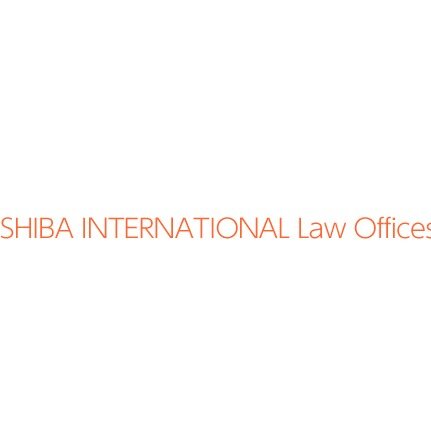Best Nonprofit & Charitable Organizations Lawyers in Tokyo
Share your needs with us, get contacted by law firms.
Free. Takes 2 min.
List of the best lawyers in Tokyo, Japan
About Nonprofit & Charitable Organizations Law in Tokyo, Japan
Nonprofit and charitable organizations in Tokyo, Japan, play a crucial role in addressing numerous social issues and contributing to community well-being. These organizations typically operate under legal frameworks that define their establishment, operation, and oversight. Nonprofit entities in Japan are primarily categorized into two types: Nonprofit Organizations (NPOs) recognized under the NPO Law, and Public Interest Corporations (PICs) that are governed by specific public interest corporation laws. The legal landscape for these organizations is designed to ensure transparency, accountability, and public trust.
Why You May Need a Lawyer
Engaging legal assistance can be crucial for various reasons in the establishment and operation of nonprofit and charitable organizations in Tokyo. Some common situations include:
- Formation and registration of nonprofit entities, requiring compliance with local regulations and documentation.
- Drafting and reviewing organizational bylaws to ensure alignment with legal requirements.
- Advising on tax implications and ensuring eligibility for tax-exempt status.
- Navigating compliance issues, including regular reporting to governmental authorities.
- Handling disputes or conflicts within the organization or with external parties.
- Assistance in fundraising activities and ensuring legal compliance with donor solicitation laws.
Local Laws Overview
The legal framework for nonprofit and charitable organizations in Tokyo is primarily governed by the following laws:
- Nonprofit Organization Law (NPO Law): This law facilitates the establishment of nonprofit organizations and mandates them to operate transparently. It details the requirements for registration and ongoing reporting.
- Public Interest Corporation Reform: This reform was introduced to provide a framework for Public Interest Corporations, ensuring stricter controls and greater accountability for organizations receiving public funds.
- Taxation Laws: These laws determine the tax treatment of donations and the criteria for qualifying for tax-exempt status.
- Fundraising Regulations: Rules and guidelines surrounding the solicitation of donations, aimed at preventing fraud and ensuring donor protection.
Frequently Asked Questions
What is a Nonprofit Organization (NPO) in Japan?
A Nonprofit Organization (NPO) in Japan refers to an entity established to conduct activities beneficial to the public interest without seeking profits for distribution among members.
How do I register a nonprofit organization in Tokyo?
To register an NPO in Tokyo, you must prepare the articles of incorporation, submit necessary documentation to the Tokyo Metropolitan Government, and meet specific legal criteria for registration under the NPO Law.
What are the key differences between an NPO and a Public Interest Corporation?
NPOs are generally smaller and have simpler governance structures compared to Public Interest Corporations, which operate under stricter regulations and are more suitable for larger organizations with significant public funding.
Can a nonprofit organization earn income from business activities?
Yes, a nonprofit organization can earn income from business activities, provided that the income is used exclusively to further the organization's nonprofit objectives.
What tax benefits are available for nonprofit organizations in Tokyo?
Nonprofit organizations may qualify for various tax benefits, including exemptions from certain corporate taxes and eligibility for receiving tax-deductible donations, if they meet the necessary criteria.
How can nonprofits ensure compliance with local laws?
Nonprofits can ensure compliance by maintaining accurate records, submitting annual reports to authorities, adopting transparent practices, and seeking legal advice as necessary.
Are there any specific fundraising laws in Tokyo?
Yes, there are specific regulations governing fundraising activities to ensure ethical solicitation practices. Nonprofits should familiarize themselves with these laws to avoid legal issues.
What is the legal process to dissolve a nonprofit in Tokyo?
The dissolution process involves notifying relevant authorities, settling debts, distributing remaining assets according to the articles of incorporation, and officially deregistering the organization.
Can a foreigner establish a nonprofit organization in Tokyo?
Yes, a foreigner can establish a nonprofit organization in Tokyo, provided they comply with the same legal requirements as Japanese nationals.
What penalties exist for non-compliance with nonprofit laws?
Penalties for non-compliance can include fines, suspension of operations, and potential criminal charges for severe violations.
Additional Resources
For those seeking further information or assistance, the following resources may be helpful:
- Tokyo Metropolitan Government: Offers guidance and services related to the registration and regulation of NPOs.
- Japan NPO Center: Provides resources, advocacy, and support for nonprofit organizations in Japan.
- Ministry of Internal Affairs and Communications: Oversees the NPO Law and offers detailed information on regulatory compliance.
Next Steps
If you require legal assistance with nonprofit and charitable organizations in Tokyo:
- Determine your specific legal needs, such as formation, compliance, or dispute resolution.
- Research and contact a qualified lawyer or law firm experienced in nonprofit law in Tokyo.
- Prepare all necessary documentation and details of your situation to discuss with the lawyer.
- Consider scheduling an initial consultation to understand the legal landscape and potential costs involved.
Taking these steps will help ensure you receive the guidance and support required to effectively manage your nonprofit organization in Tokyo, Japan.
Lawzana helps you find the best lawyers and law firms in Tokyo through a curated and pre-screened list of qualified legal professionals. Our platform offers rankings and detailed profiles of attorneys and law firms, allowing you to compare based on practice areas, including Nonprofit & Charitable Organizations, experience, and client feedback.
Each profile includes a description of the firm's areas of practice, client reviews, team members and partners, year of establishment, spoken languages, office locations, contact information, social media presence, and any published articles or resources. Most firms on our platform speak English and are experienced in both local and international legal matters.
Get a quote from top-rated law firms in Tokyo, Japan — quickly, securely, and without unnecessary hassle.
Disclaimer:
The information provided on this page is for general informational purposes only and does not constitute legal advice. While we strive to ensure the accuracy and relevance of the content, legal information may change over time, and interpretations of the law can vary. You should always consult with a qualified legal professional for advice specific to your situation.
We disclaim all liability for actions taken or not taken based on the content of this page. If you believe any information is incorrect or outdated, please contact us, and we will review and update it where appropriate.













